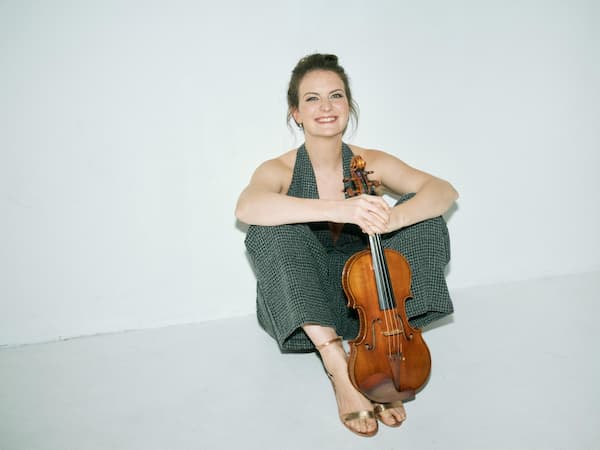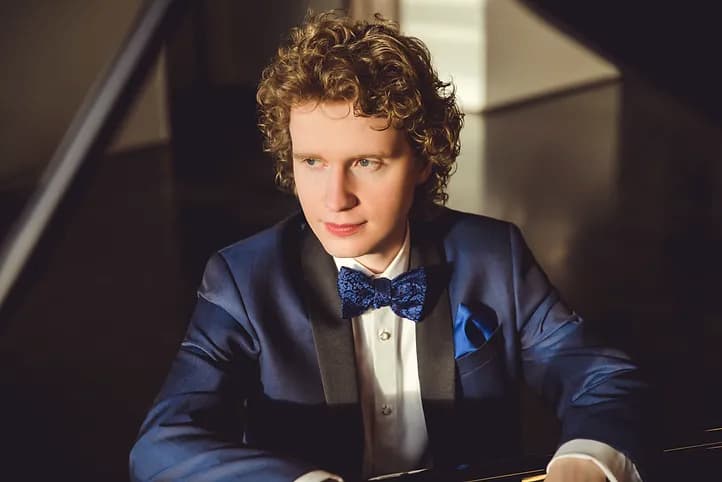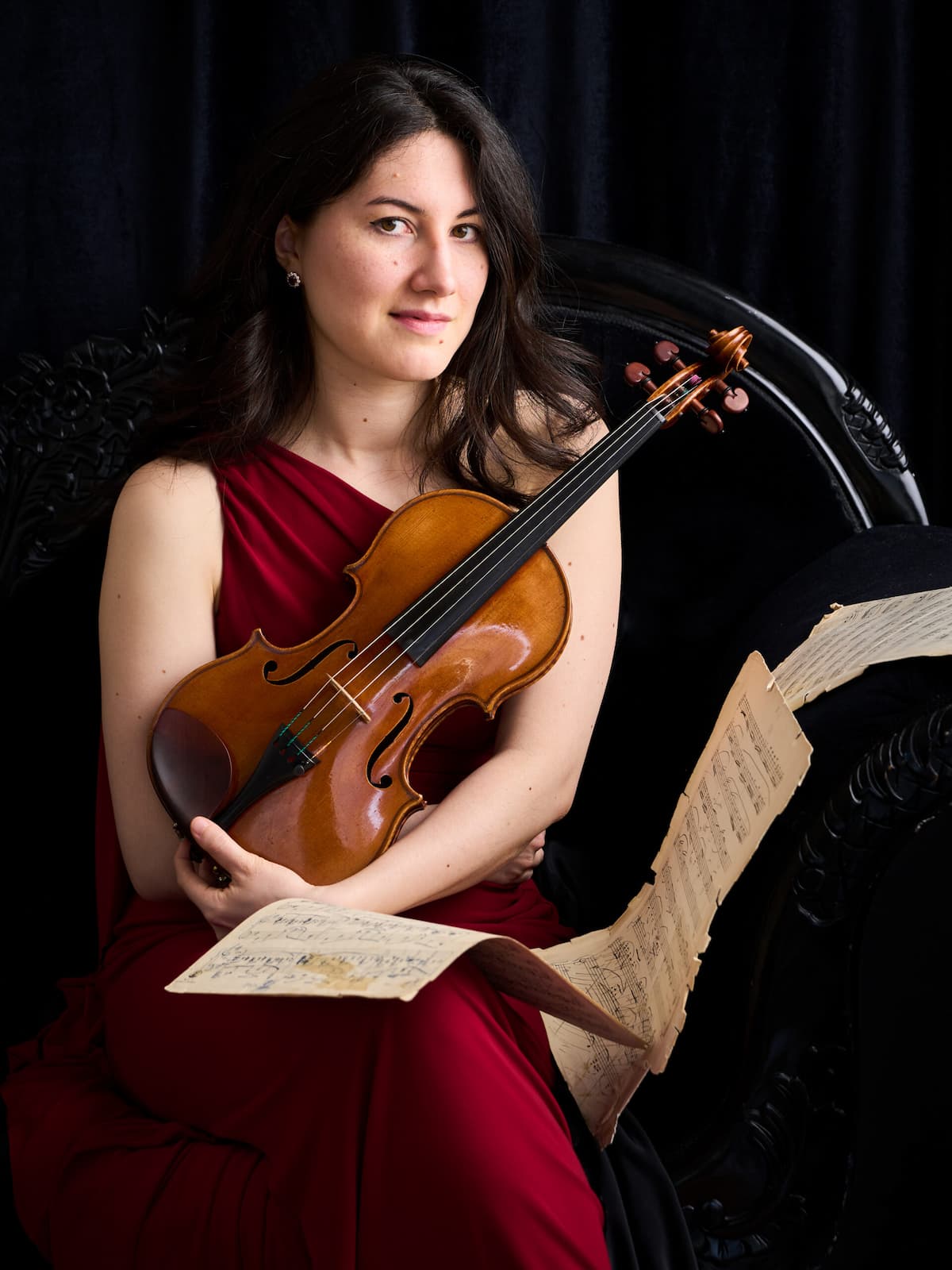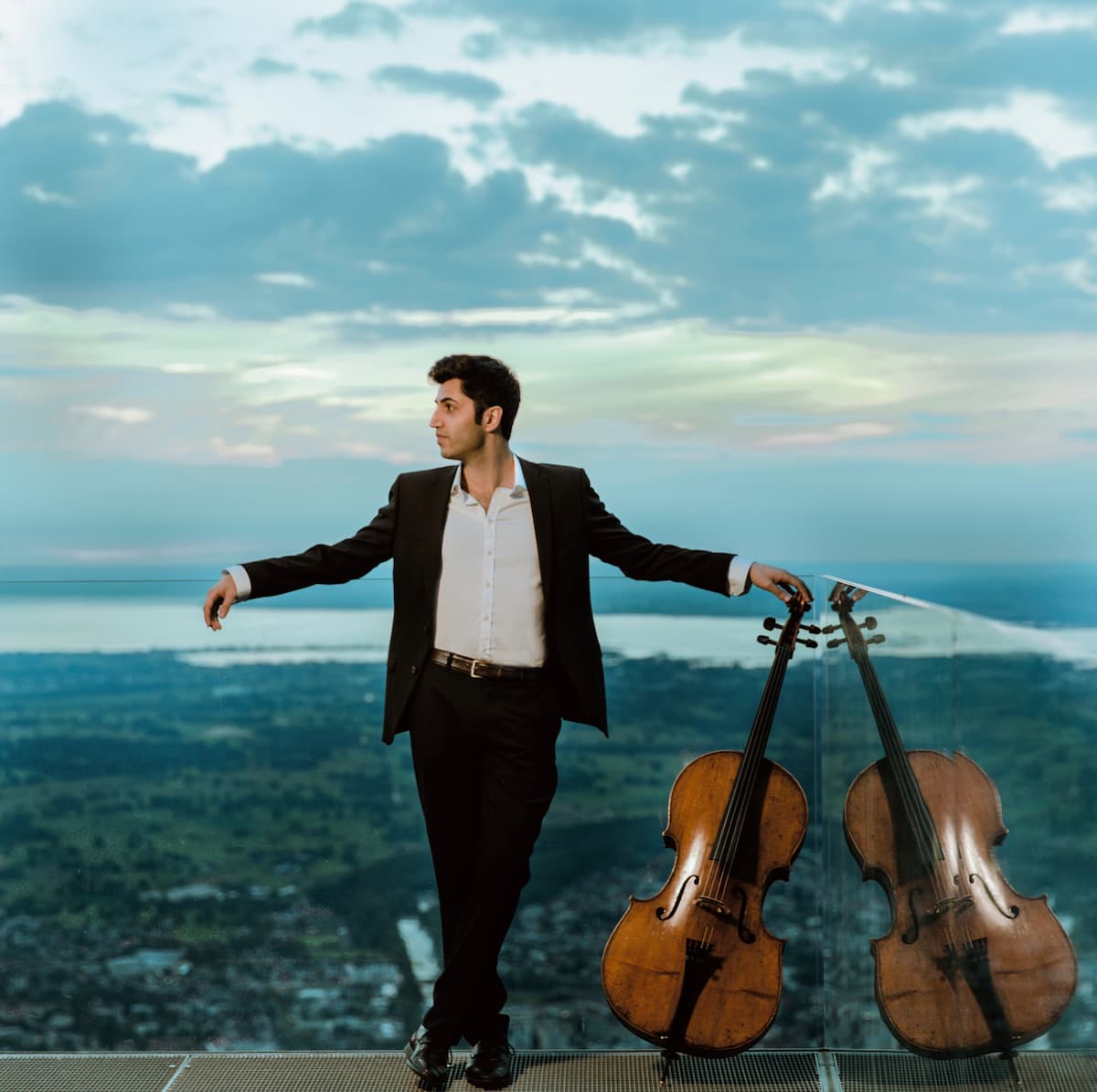‘Be in the music, and the rest will come by itself’
Last year, at just age 25, violinist Yamen Saadi was appointed Concertmaster of the Vienna State Opera and Vienna Philharmonic. Yamen holds this position alongside a busy schedule of solo and chamber music engagements: as a soloist, he has performed with orchestras such as Staatskapelle Berlin, Israel Philharmonic Orchestra, Chamber Orchestra of Europe, Polish National Radio Symphony Orchestra, Orquestra de València and Jerusalem Symphony Orchestra, among others, and has performed with conductors including Daniel Barenboim, Lionel Bringuier, Lawrence Foster, Leonidas Kavakos, Christoph Poppen and Lahav Shani.
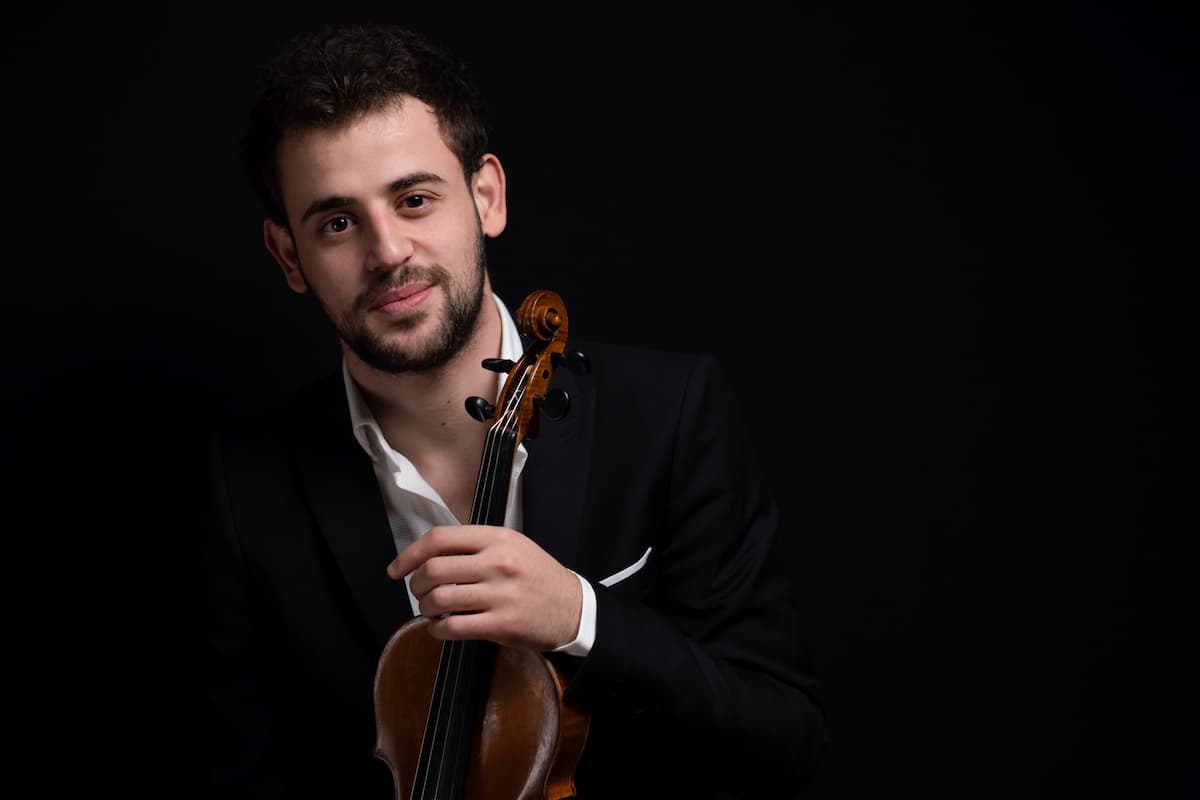
Yamen Saadi © Intermusica
Saadi has performed in recitals and concertos at various festivals and venues across Europe, Asia, and the US. These include; Carnegie Hall, Elbphilharmonie, Rheingau Festival, Schleswig-Holstein Music Festival, Pau Casals Festival, Jerusalem Festival and Schloss Elmau. In November 2023, he makes his recital debut in Tokyo at the Hamarikyu Asahi Hall and the Musashino Civic Cultural Hall.
Originally from Nazareth, Yamen didn’t come from a particularly musical family, but found his way to the violin primarily through his studies at the Barenboim-Said Conservatory in Nazareth, going on to complete his Bachelor’s studies at the Barenboim-Said Academy in Berlin, and furthering his studies with a Master’s at the Kronberg Academy.
Noted for a musical sensitivity and maturity beyond his years, Yamen talks to me after a busy summer preparing for the Opera’s new season. His free moments have been few and far between but he speaks with passion and excitement, full of energy for the exciting year ahead.
Yamen Saadi & Nathalia Milstein | Salut d’Amour (E. Elgar)
Have you managed to find any time off this summer?
I had three days off in Spain. It was very nice and necessary, but longer would have been smarter! I think at the beginning, in an opera job, there are many new pieces, so one gets a bit less time off, but I think once you know the music it becomes easier.
How did you feel when you won the Vienna Philharmonic job?
Of course, I was very happy. I still remember the process of the auditions: it’s over two days, you have three rounds on the first day, and the next day is the orchestral round. With every round you pass, you think, ‘Wow, that’s one more step’.
I remember the night before the last round – of course, I was thinking I would love to win the position, but just getting to play Ein Heldenleben one time with the Vienna Philharmonic, I thought ‘This will be a dream, so I’m just going to enjoy it’. I actually enjoyed it so much, and now luckily I get to do that every day.
Did framing the process around ‘enjoying it’ help with the nerves of the audition?
Yes; it’s just to see it as one more concert, especially the final round of course, when you get to play with the orchestra. The first time that you play with the orchestra is really a moment to remember.
They were the first orchestra I ever saw live, in Salzburg when I was 10 or something – they were playing Tchaikovsky’s Eugene Onegin, and I got to play that with them this year, and I thought, ‘Wow, this is crazy’.
Your parents aren’t musicians – how did you find your way to the violin?
I wanted to play an instrument when I was younger and I remember I saw the violin on TV or something, and someone told me that it was the hardest instrument to play. I thought, ‘I need to play that. It needs to be the hardest, to make my life harder!’
My parents found a teacher who was teaching in my school as an after-school activity. I studied there for half a year, a year, and then the Barenboim-Said Conservatory opened in Nazareth, and then I started there.
Ysaÿe | Poème élégiaque op.12 | Yamen Saadi | Aviv Competitions
Did you always know you wanted to be a professional?
When I was 10 I played at the Jerusalem Chamber Music Festival, and there I met Daniel Barenboim. One year later, when I was 11, I joined the West-Eastern Divan Orchestra, and after the first tour with the Divan I thought, ‘Ok, let’s practise more.’ That’s what I wanted to do.
How was it to be in the orchestra at that age?
It was a lot of fun. Of course, I had the least experience, but I was learning by doing, learning from colleagues. I didn’t know what to expect, and definitely musically you get to see how Maestro Barenboim works – so many details, every note counts, and so on. That was extremely interesting to see.
Is that something you still take forward into your playing now?
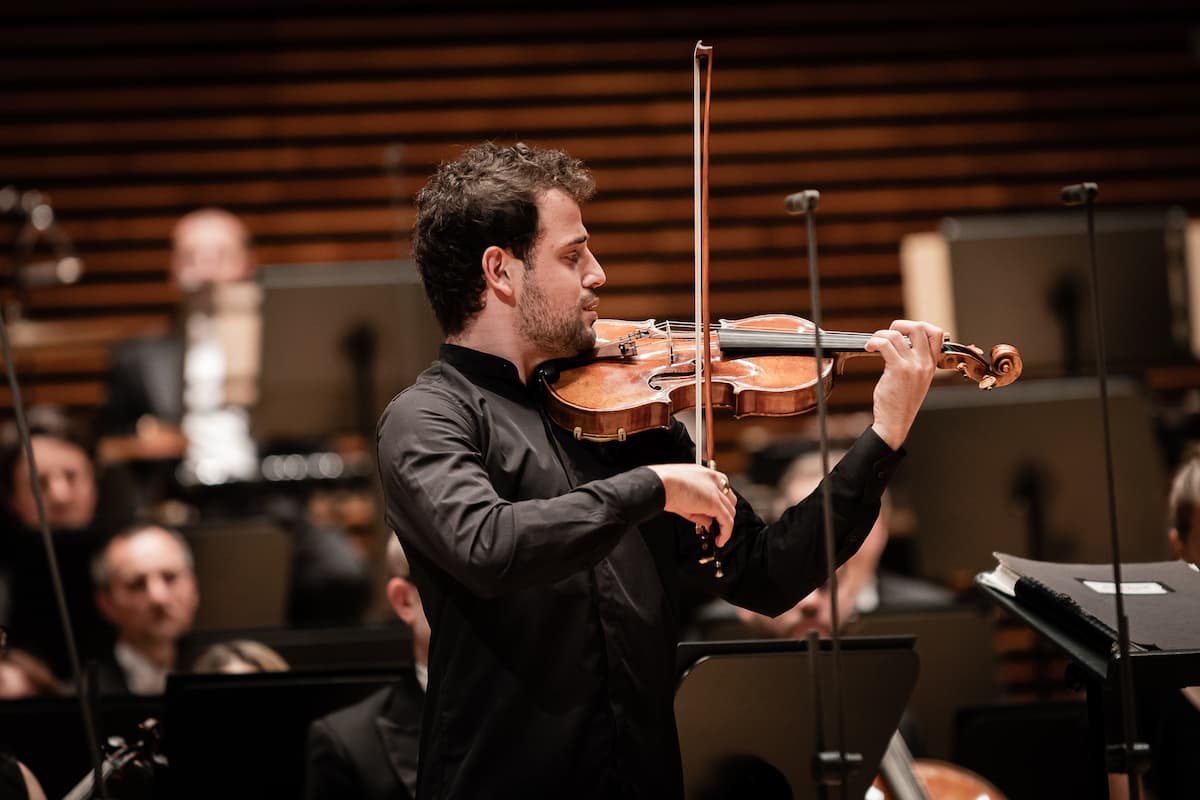
© Intermusica
Absolutely. As musicians, we have the score for reference, but if you look at the score and just play the notes, you will not get the most results. If you really try to understand what’s written, the harmonies, really try to do all the nuances, try to have a feeling for it: that’s when you start to understand the piece. So I try to do that a lot.
Do you still like to be challenged today?
Yes – although right now I think I’d like a little less challenge! Learning the repertoire of the Opera, at the beginning, is not an easy thing to do, but it’s an enjoyable thing once you really know the music. Yesterday, for instance, was Tristan [und Isolde] – it’s a really big work, and it takes time to really learn it. Of course, you can play the notes, but until you really know the music and have it in your ear, it takes a bit of time.
There are always big pieces in the repertoire coming up, but it’s nice also to somehow just feel grounded. I have had many challenges, but it’s also important to give the time to just be in one phase of life.
Part of the training is so focused on improving, on looking ahead, that we sometimes forget to look around.
We are always thinking about the future, but we forget what’s happening now. I think that’s key. We’re always thinking ‘I need to do this and that for the future,’ and so on, but we forget that things are happening now, not in the future. Just to be in the present situation, musically speaking, is very important.
Is there something you know now that you wish you’d have known when you were younger, something that you would tell your younger self?
Many things. But one thing is exactly what I said before. We as musicians, especially when we are studying, tend to think about what will happen. We only want to know what will happen in the competition, in this or that. But if one thinks, ‘It will be fine,’ and really just tries to enjoy the process, that’s one thing I would do differently, maybe: to enjoy the steps more.
Would you give that advice to younger violinists today?
Absolutely. Just go step by step, enjoy every step of it – the nice ones and the not-so-nice ones. And just to try to be in the music, and the rest will come by itself.
When you’re studying, you don’t know what will happen. You could end up doing everything, and it’s important to have this in mind: that the most important thing at the moment is music, and that the rest will happen by itself.
Something that I did and that I thank myself for doing is that I really tried to do everything. If there was a small concert in a small town, I said yes. If there was a masterclass somewhere, I said yes, I’ll go. If there was an orchestra who needed someone – a soloist, a chamber musician, anything – I always said yes. I tried to do as many different things as possible, and in the end, everything leads to something. I think something that is very important is not to fixate on any one thing.
24chambers | Chianti Ensemble | Franck, Piano Quintet in F minor
What do you do in your (currently very limited) spare time?
I’m going to restart a bit of sport because I haven’t been doing that much. For fun things, I like to watch some series, some films (although I’m not a fanatic). I used to go a lot to play billiards when I had time, and I absolutely love to hang out with people, so if there is some time, and there are friends around, I like that very much.
For more of the best in classical music, sign up for our E-Newsletter

